Do you need good sleep hygiene tips?
What are signs of poor sleep hygiene?
Despite what the name would imply, your sleep hygiene has less to do with hygiene and more to do with the quality of your sleep. How you fall asleep, stay asleep and the level of your sleep at night.
So, if you’re having sleepless and restless nights, you’re probably wondering, does your sleep hygiene STINK? Let’s take a look at exactly what sleep hygiene is in more detail, and some good sleep hygiene tips to keep you sleeping sound.
![]() THIS POST MAY CONTAIN AFFILIATE LINKS.
THIS POST MAY CONTAIN AFFILIATE LINKS.![]()
IF YOU MAKE A PURCHASE FROM THESE LINKS, I MAY EARN A SMALL COMMISSION.
CLICK HERE FOR MY FULL DISCLAIMER STATEMENT.
What is Poor Sleep Hygiene?
Poor sleep hygiene is essentially when we aren’t allowing our bodies to get enough quality sleep. This might be due to a sleep disorder, or to lifestyle factors that we haven’t considered that might be negatively impacting our sleep.
It’s important to note that poor sleep hygiene if gone unnoticed and unresolved can lead to health concerns, as we start to experience the short-term and long-term side effects of sleep deprivation.

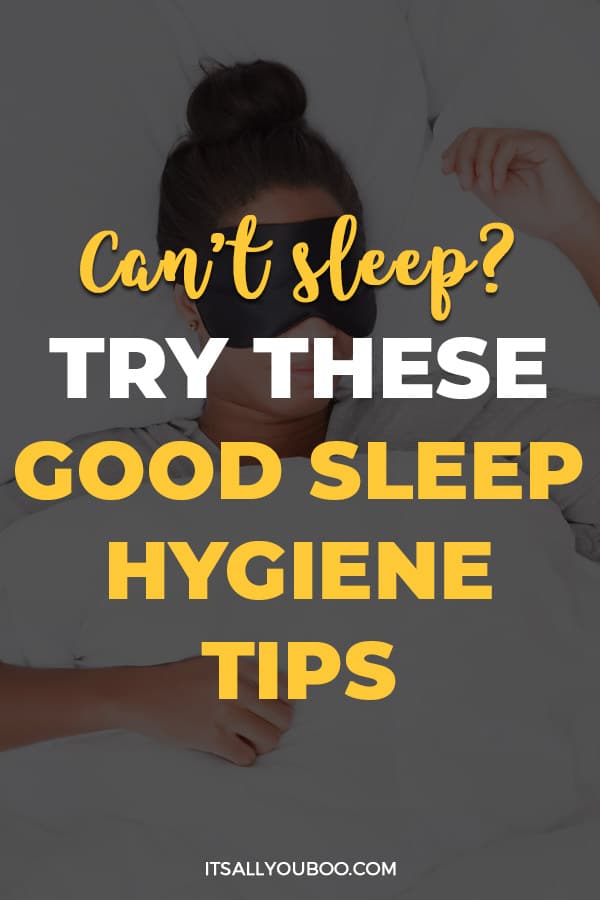
What are the Signs of Poor Sleep Hygiene?
We can recognize poor sleep hygiene by looking at our everyday symptoms.
Someone with poor sleep hygiene might experience low energy, lack of motivation, lack of drive, mood changes, difficulty with decision-making, memory issues, concentration difficulties, headaches, and overall tiredness.
This list is by no means extensive, with many other symptoms of poor sleep hygiene creeping into our everyday life.
👉🏽 RELATED POST: Sleep Better with Aromatherapy Essential Oils
How Can I Improve my Sleep Hygiene?
The first step for how to improve sleep hygiene is by first acknowledging the areas that need improvement. To understand what needs improving, it helps to understand exactly what sleep does for our health and wellness.
A Closer Look At the Sleep Cycle
What is proper sleep hygiene? Good sleep hygiene is when we’re getting enough quality sleep.
Most adults need between 7-9 hours of sleep. The reason for this is that we need to go through our sleep cycle 5 times consecutively. One sleep cycle can be broken down into 4 sleep stages.
#1. Non-Rapid Eye Movement 1
We start in NREM 1 (non-rapid eye movement), where the thalamus (in the brain) ‘shuts down’ our conscious response. This allows the cortex to relax, and the brain to shift from active thinking to performing more restorative actions.
We stay in NREM 1 for about 5-10 minutes each time we cycle through the sleep stages. Typically, we’re in very light sleep in NREM 1 as this is when our brainwaves begin to slow down. Your heartbeat, breathing, and eye movements also slow down, with your muscles relaxing with the occasional twitch.
Ever had that running dream where you trip and it jolts you awake? This typically happens in NREM 1 as the body is drifting off into deeper sleep…
#2. Non-Rapid Eye Movement 2
Next, we head into NREM 2, where we really begin to drift off to sleep. We become more relaxed and more unaware of our surroundings in this sleep stage. Our body temperature drops, our heart rate, and brain activity continue to slow down, with eye movement stopping completely.
👉🏽 RELATED POST: 5 Ways to Improve Your Bedroom for Better Sleep
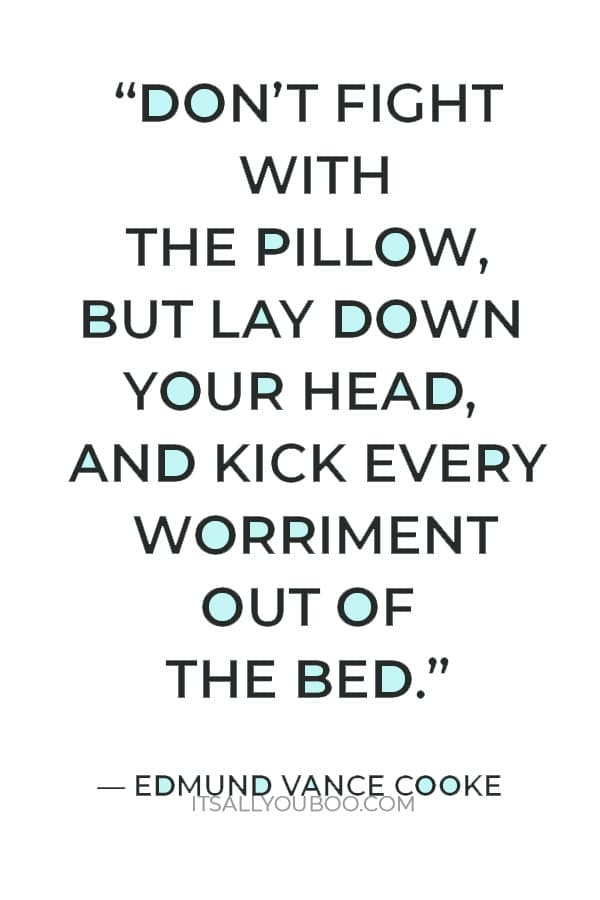
With this sleep stage lasting about 20 minutes, it’s estimated we spend about 50% of our sleep in NREM 2. In this sleep stage, we experience something called sleep spindles, bursts of rapid, rhythmic brain activity. This sounds disruptive to our sleep, however, it’s been shown that sleep spindles occur to keep us in a peaceful state while sleeping. They allow us to move into the next stage of our sleep cycle. Research has shown that sleep spindles are linked with information understanding and long-term memory formation.
Research has also shown that those who produce more sleep spindles during NREM 2 are less likely to be woken up by external noises, and are more likely to have a restful sleep. As we get older, we start to produce fewer sleep spindles, which could be one factor that results in parents struggling with getting restful sleep. The older we get, the more likely we are to awaken due to external noises.
#3. Non-Rapid Eye Movement 3
Then, we head into NREM 3, the sleep stage in which we are the most relaxed, in the deepest state of sleep.
During NREM 3, our muscles are relaxed, our blood pressure drops, and our breathing rate and heart rate slow to their lowest levels. NREM 3 is the sleep stage that makes us feel refreshed and rested when we awake, as this is the sleep stage where our energy is restored.
Our body goes through healing and restoration during this sleep stage. The human growth hormone is released with tissue growth and repair occurring.
It’s hard to wake up from this sleep stage, and typically we’ll be in this sleep stage for a longer duration in the first couple of sleep cycles compared to our last sleep cycles of the night.
👉🏽 RELATED POST: How to Create the Best Night Time Routine
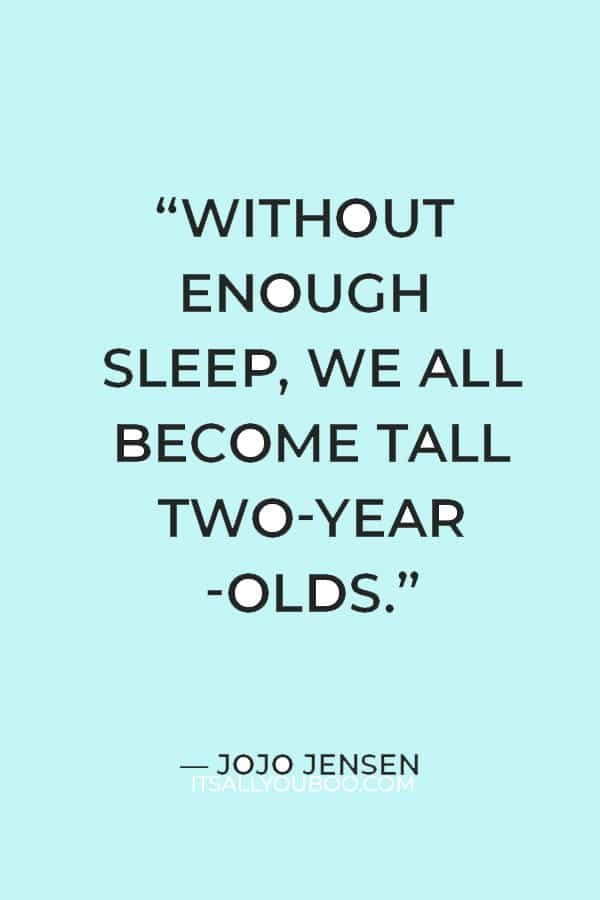
#4. Rapid Eye Movement Sleep
The final stage of our sleep cycle is REM sleep. In this stage, conversely to NREM sleep, our brainwaves are faster, acting more like how they do when we’re awake. The body is still in rest mode, however, the mind is more active, able to pick up on internal stimuli.
REM sleep makes up about 25% of our sleep cycle and usually happens for the first time about 90 minutes after we’ve fallen asleep.
REM sleep helps the mind connect what we’ve learned and experienced with our thoughts and skills, allowing us to come up with new ideas, gaining a deeper insight into our lives. If you’ve ever woken up feeling creative with a new idea, this will be the result of getting some good REM sleep!
Good Sleep Hygiene Benefits
As we’ve just learned, tissue growth and muscle repair functions occur during our non-REM sleep stages. Contrarily, a lack of sleep informs the sympathetic nervous system to release adrenaline hormones, signalling to the heart to work harder. This aspect of sleep deprivation introduces an increased risk for high cholesterol, heart attack, and stroke.
Our immune system, which is what serves to fight off viruses, benefits enormously from sleep. Getting our consecutive 8 hours of regular sleep will help the immune system produce more antibodies, and can even improve the benefits of preventative vaccines.
Sleep plays a huge role in our memory, as the brain is in the most ideal state during sleep to consolidate processes that integrate new memories into our long-term memory storage.
👉🏽 RELATED POST: 14 Healthy Lifestyle Changes for Mental Clarity
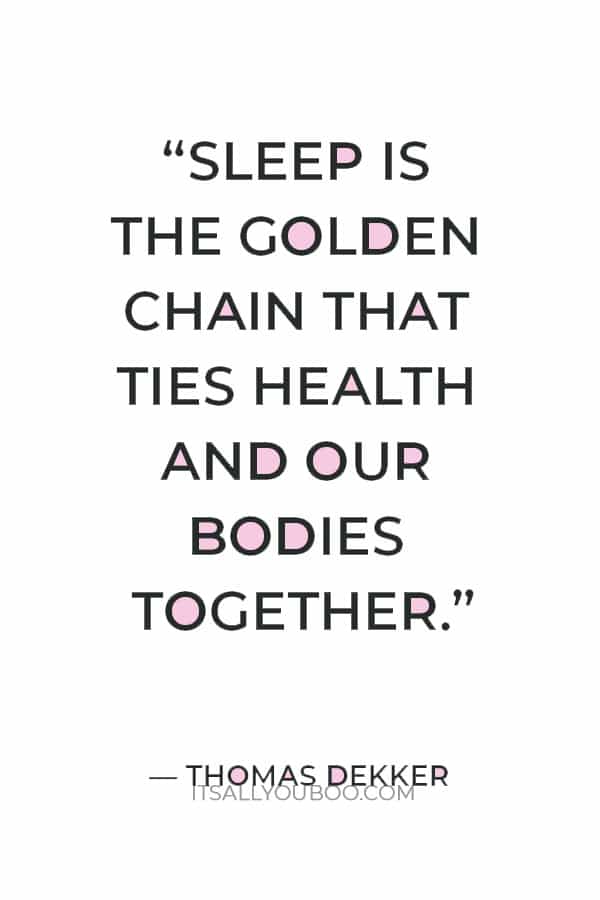
Sleep is also responsible for hormone balancing and mood regulation. People who are undergoing mental health treatment or are recovering from a mental health disorder benefit enormously from additional sleep, as the brain and body are able to repair during sleep.
Athletes are also encouraged to aim for more sleep during training to accommodate recovery and to use sleep as a performance enhancer. Because our memory is formed during sleep, athletes and artists learning a new song can use sleep as a memory enhancement, allowing the brain to memorize pieces of information like body placement or chord progressions.
Now that we understand what happens during sleep and recognize the health benefits of sleep beyond simply resting, we can identify which areas of our sleeping hygiene need improvement.
Top 5 Good Sleep Hygiene Tips
What are the 5 tips and tricks for good sleep hygiene? How do you improve your sleep?
It’s not just about getting enough sleep, we also need to look at the quality of our sleep. If we’re sleeping for 8 hours, but we enjoyed a few glasses of wine before falling asleep, this is going to impact the quality of our sleep.
Likewise, if we eat the wrong foods before bed, this will also decrease the quality of sleep. Let’s look into some really simple tips for how to improve sleep hygiene.
#1. Turn Off The Lights (and Your Phone)
Why do we sleep in darkness? Well, because we humans have been designed to do so! We don’t see very well in the dark, and mother nature has ensured that some really important physical and mental health recovery processes happen during sleep.
If we need to use the daytime to hunt and gather food, to procreate and survive, then naturally, sleeping at nighttime when we can’t see very well is ideal.
👉🏽 RELATED POST: 7 Quick Ways To Sleep Better
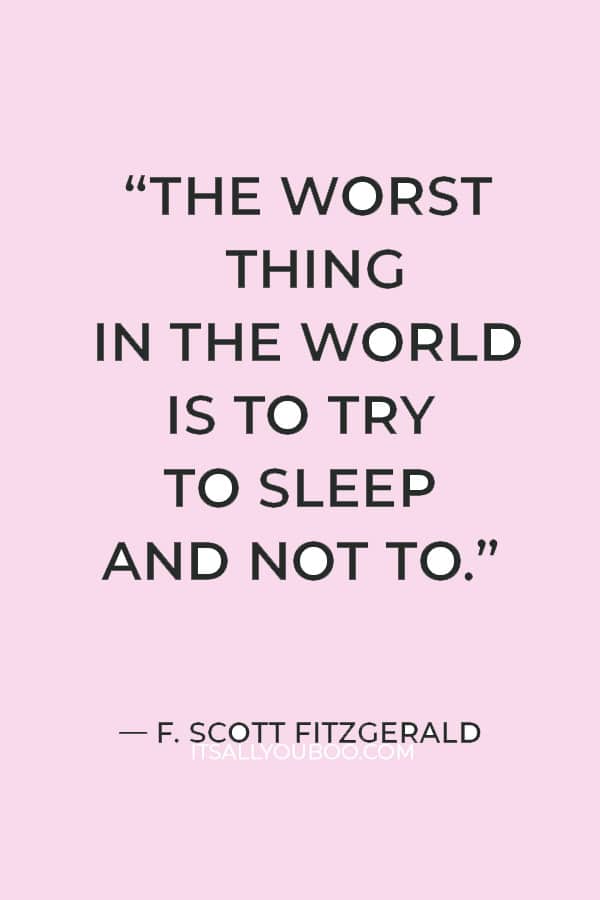
Melatonin: The Sleep Hormone
When the sun starts to set, if we don’t have any artificial lights interfering, we will naturally start to feel sleepy. This is thanks to our natural sleepy hormone, melatonin!
Melatonin is produced and released when we experience darkness. Melatonin doesn’t just help us fall asleep, it also helps to keep us asleep, with research showing that melatonin may have a role to play in the quality of our sleep. Melatonin production slows down once the sun starts to rise, preparing us to wake.
Artificial lights interfere with our melatonin production, including our device screens! Our device screens emit a type of light called blue light that tricks the brain into thinking that it’s daytime, when in fact, it’s 1 am and we’re in bed scrolling through Insta unable to sleep.
Screens and artificial lights are super disruptive to our body’s natural sleep-wake cycle. If you can reduce screen time at least 1 hour before bed, this is a good place to start. Even reducing the amount of light in our environment in the run-up to bedtime can massively help the body to naturally produce more melatonin.
Sleep Hygiene Checklist #1:
Tonight, allow the sun to fully set before turning on any lights in your living space. Notice what your energy levels are like as the sun sets. You can do whatever you usually would in the evening, but just with the lights off.
When you do go to turn the lights on, try to only turn a few on. If you have dimmers, use them. Keep things as dark as possible in the run-up to sleep, you’ll be sure to notice a difference in your energy levels.
#2. Plan for 8-9 Hours of Sleep
We previously explained why the 7-9 consecutive hours of sleep are so important for the vast majority of us. There are a few unicorns out there who thrive off of 5 hours of sleep on average, but let me make it very clear to all reading this, it is INCREDIBLY RARE to be able to thrive off of 5 hours of sleep.
I’m very intentionally using the word ‘thrive’ here. A lot of us can survive off of 5 hours of sleep, but we’re not going to have much fun doing it. We don’t sleep to survive, we sleep to thrive.
👉🏽 RELATED POST: 10 Best Health Habits List
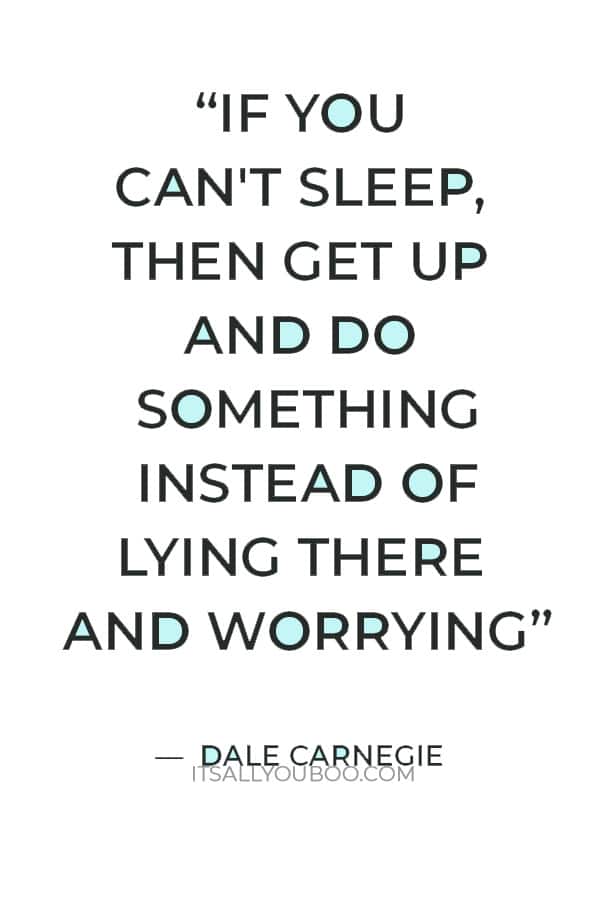
You Need Sleep to Thrive
Those rare few who can thrive off of 5 hours of sleep are actually thriving. Those of us who only get on average 5 hours of sleep per night and ‘get by’, barely avoiding falling asleep at the desk, getting headaches, feeling moody, eating poorly, needing caffeine, those of us are not thriving.
I’ll say it again: We need to sleep to THRIVE, not just to survive.
With that being said, in order to get between 7-9 hours of sleep each night, we need to plan for 8-9 hours of sleep in case it takes us a little while to fall asleep.
Sleep Hygiene Checklist #2:
Figure out what time you need to wake up, and count back 8-9 hours. This is the time you should be getting into bed, giving yourself that additional hour to fall asleep in case you want to read in bed, listen to a sleepy guided meditation, or in case it takes you a little while to fall asleep.
If you’re a shift worker, your hours might frequently change, meaning you’ll likely have to wake up and fall asleep at different times from day to day. It’s worth noting that it is more ideal to sleep and wake at the same time every day as this helps our body get into a sleep-wake rhythm. As shift workers don’t have this luxury, it’s even more important to count back and really plan for those 8-9 hours of consecutive sleep.
#3. Check the Temperature (and Get Naked!)
Fun fact! Our core body temperature has to drop 1-2 degrees Fahrenheit in order to initiate sleep. There are a few ways we can do this…
Having a hot bath or shower might sound contradictory, but when we have a hot bath or shower, when we get out, our body temperature plummets as it tries to regulate, cooling us right down.
If we have a way of regulating the temperature where we live, we can set the temperature at home to the optimum temperature for sleep, 18.3 degrees Celcius/65 degrees Fahrenheit.
To help regulate our body temperature while we’re asleep, we can sleep naked! Well… nearly naked.
Sleep Hygiene Checklist #3:
Neuroscientist and sleep expert Matthew Walker suggests in a 2018 interview with Joe Rogan that we sleep naked, wearing socks and gloves, as wearing gloves and socks will help to ensure we don’t get too cold while we’re asleep. It’s a bit of an out-there look, but depending on our sleeping hygiene, it could be worth trying this type of method!
👉🏽 RELATED POST: 21 Healthy Habits for Students
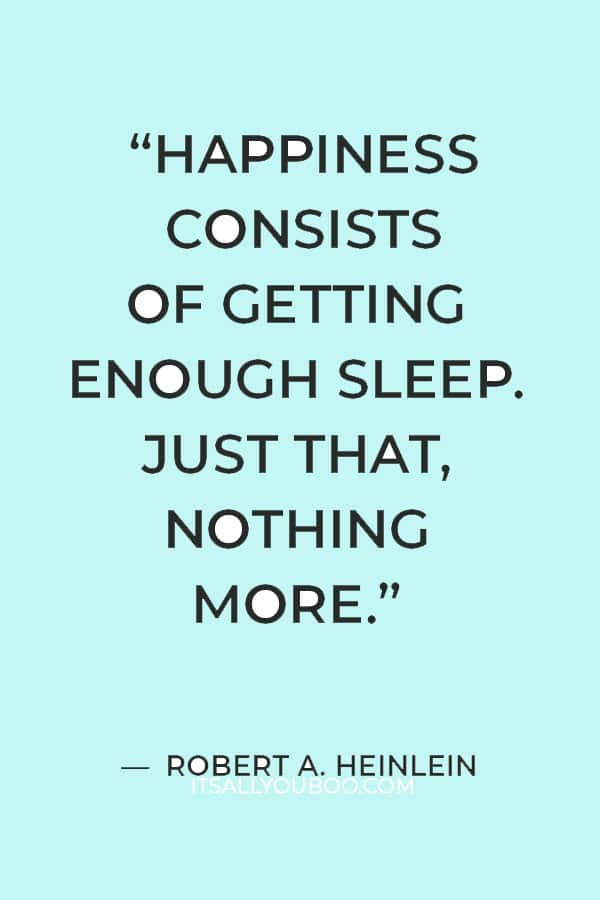
#4. Watch What You Eat Before Bed
Caffeine’s not the only substance that will keep you up at night. Food interferes with our sleep. What we eat before bed can positively or negatively impact our sleep quality, and our ability to fall asleep.
Sleep Hygiene Checklist #4:
A good rule of thumb when it comes to eating to promote sleeping hygiene is to stop eating 4 hours before you plan to fall asleep. This gives our body plenty of time to start digestion before dozing off. If we eat close to when we’re supposed to fall asleep, our body will be busy working to digest dinner, unable to drift off or get the quality of sleep we need.
#5. No Night Caps!
They sure are good at putting us to sleep, but they’re also really good at ensuring the quality of sleep we get sucks!
If you’re used to consuming alcohol in the evenings, it could be worth reducing alcohol consumption, or allocating one night per week where you sleep sober.
Sleep Hygiene Checklist #5:
Studies have shown that the more alcohol we consume, the worse the quality of sleep, so even reducing intake from 3 to 2 glasses of wine will have a positive impact on sleep quality. Reducing alcohol intake is also beneficial for our health, so it tackles two concerns in one!
Other substances like marijuana which typically make consumers feel drowsy or sleepy also negatively impact the quality of sleep we get. Limiting consumption to earlier in the day, or allocating one night per week to sleep sober is a great place to start. Small changes add up to big improvements over time!
👉🏽 RELATED POST: Ultimate Daily Skin Care Routine For Stress
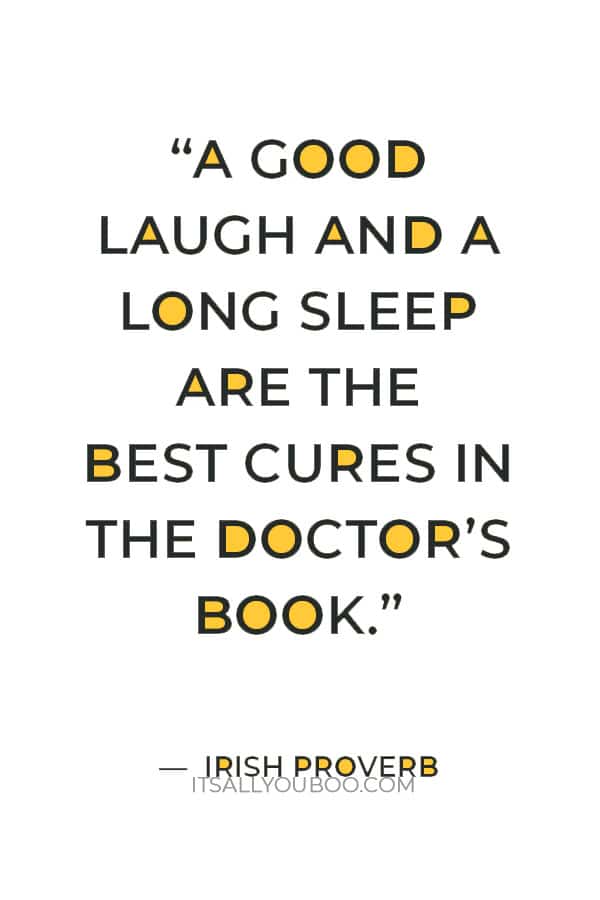
More Good Sleep Hygiene Strategies
What are three strategies to improve your sleep hygiene?
When implementing good sleep hygiene tips into our sleeping habits to improve sleep hygiene, it’s important to make sure that we are using a strategy that works for us. We’re all individuals, and what might work for one person may look drastically different from another.
If we are unable to action a sleep routine change that we wanted to implement, it’s time to make the goal smaller and more achievable until we’re able to consistently do the change.
It’s a good idea to ask yourself the following questions once you’ve decided on a sleep habit to change…
Question #1: Are You Ready?
Sometimes it’s hard to implement good habits. We actively have to get rid of one habit and replace it with another, which depending on the habit we’re eliminating, can be overwhelmingly difficult!
It’s important to only choose a habit to change that we are ready, mentally and physically, to do.
If you enjoy the social aspect of messaging a friend or a loved one just before bed, maybe you aren’t ready to change this sleep routine habit and should start with something you’re more mentally ready to change.
If you’ve decided to charge your phone in another room overnight to limit screen time before bed, have you figured out what you’re going to use as an alarm to wake up with? Do you have it ready to go?
Changing our habits takes a lot of effort! Ask yourself first, am I ready to put the effort in? It’s perfectly valid for your answer to be no! If the answer is no, you’re not ready for that change, then choose something smaller to change, something that you are ready to do.
👉🏽 RELATED POST: 80 Quotes about Change in Life
Question #2: Are You Willing?
So we know you’re ready for your chosen change, but are you willing to make the change? Are you willing to change what you eat for dinner to promote improved sleep hygiene? If you aren’t willing to change the dinner menu, then it’s time to look for something that you are willing to do.
Again, it’s perfectly valid to say no! If you’re a mum with kids to feed and you’re not willing to give up your current dinner menus because they’re working for you, that’s valid! Let’s tackle something more accessible that you are willing to change.
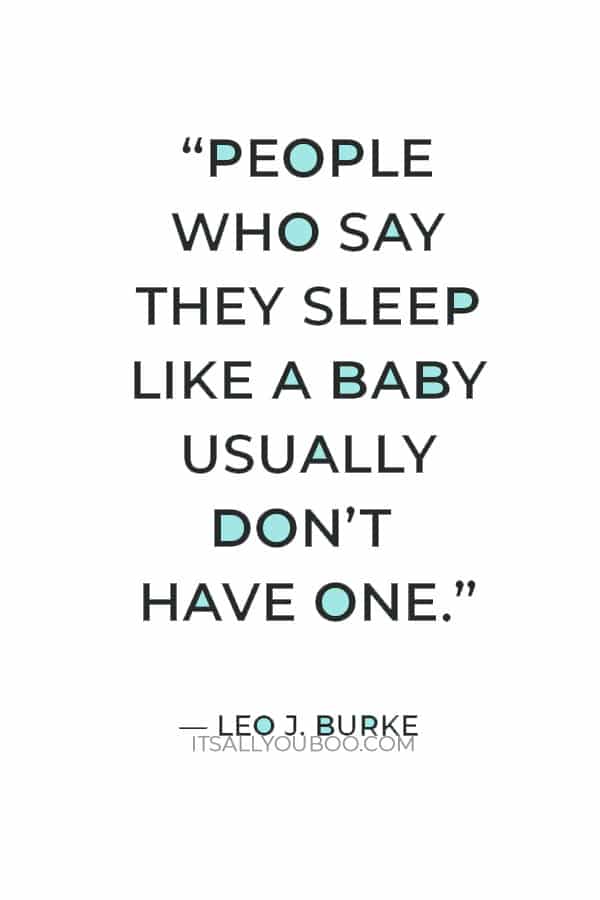
Question #3: Are You Able?
Are you physically and mentally able to implement your chosen change? Maybe choosing to improve our sleep hygiene the same weekend your party family are coming to visit is not the most ideal time… if you aren’t able to implement the change today, we need to look for something that you are actually able to change.
For your chosen change to become an automatic habit that we don’t even think about, you need to be ready, willing, and able to make the change. You can ask yourself these questions to come to a conclusion on the first improvement you want to make to get to good sleep hygiene.
Keeping Good Sleep Hygiene Tips in Mind
Make yourself a good sleep hygiene checklist of the areas of your sleep that you think could be improved. You don’t have to tackle them all at once, in fact, you’ll likely be more successful at implement long-lasting sleep hygiene improvements if you tackle changes one by one. Making a checklist will serve as a reminder of the things you can do every day to improve your sleep hygiene.
Your sleep hygiene checklist can include things like checking meal plans for the week, ensuring there aren’t any scheduled dinners that could disrupt sleep. It could include limiting screen time before bed to improve melatonin production.
It could include planning for 8 hours of sleep and checking the temperature of your space before bed, airing out your bedroom to cool it down before bed. Your sleep hygiene checklist might even include finding comfortable gloves to sleep in!
Get The Ultimate Bedtime Routine
Ready to improve your sleep hygiene? To get better quality sleep every night?
Sign up below to get your FREE bedtime checklist for better night’s sleep, with simple ideas to help you sleep better tonight.
Your sleep hygiene checklist will likely look different from mine because we all have different challenges around our sleep. Look at your current sleep hygiene with a critical eye, and give yourself time and patience to implement long-lasting habit changes to improve your sleep hygiene.
If you’re concerned about your sleep hygiene, remember to always speak openly with your healthcare provider to understand if you could benefit from some form of sleep hygiene treatment.

Which good sleep hygiene tips do you use?

More About Guest Contributor
Gabie Lazareff is a certified health and yoga coach and experienced wellness author. Writing for Somnus Therapy, the online sleep therapy platform, Gabie is educating readers about the importance of sleep not just to survive, but to thrive.
Last Updated on July 23, 2024






